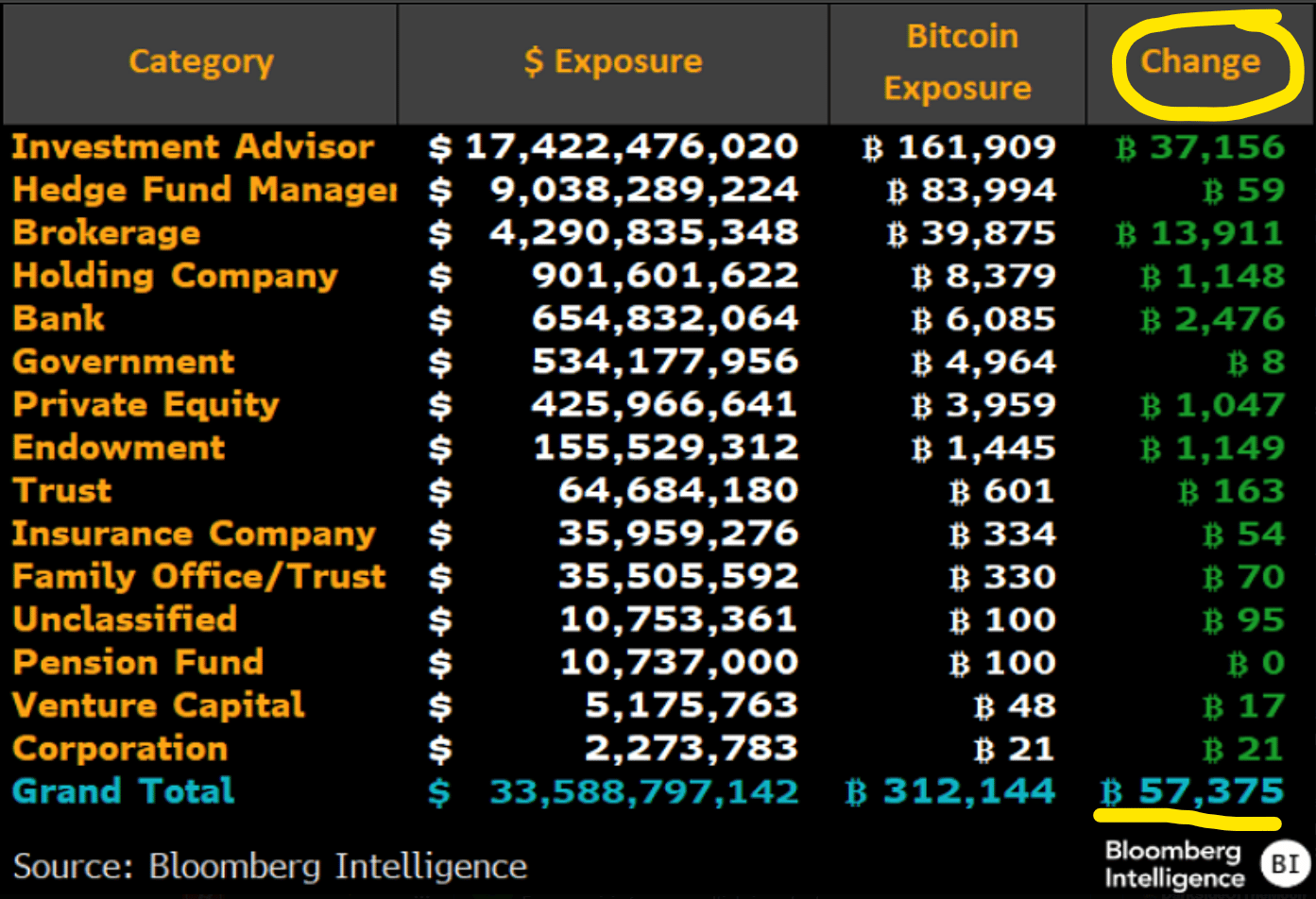- The Roundup
- Posts
- Fed's Inflation Flexibility Gives Bitcoin a Narrative for Next Leg Up
Fed's Inflation Flexibility Gives Bitcoin a Narrative for Next Leg Up
🚀Powell quietly abandons 2% target while institutions double down on ETF's
Welcome to The Roundup!
This week's Bitcoin insights include 👇
Core developers caught joking about DoS attacks on Knots nodes
Fed removes "achieving" 2% inflation language - time to “let it run hot”
Bitcoin ETF demand stays robust as every institutional category increases exposure
Let's jump in!
1️⃣ Core Developers Joke About Attacking Knots
Bitcoin Core developers were caught laughing about launching denial-of-service attacks against Knots nodes this week.

Source: @NazgulHODL
In a recorded X space, Marathon Mining's Slipstream creator described how "easy" and "funny" it would be to DoS attack the 4,000+ Knots nodes by repeatedly requesting full blockchain downloads to crash them.
Core developers found this hilarious, with Peter Todd even saying there's a ”good argument for banning Knots nodes".
The context? Knots gives node operators freedom to filter spam transactions that Core's upcoming v30 wants everyone to accept—up to 1MB of arbitrary data per transaction. Since January, Knots nodes have surged 638% to over 4,000 as operators reject these changes.
Why this matters? Well, it exposes what Bitcoiners have long suspected - that Core development has been captured by corporate interests pushing for data storage on Bitcoin. When nodes disagree, Core's response isn't a technical debate, but rather involves discussing DoS attacks against dissenting nodes.
The irony is breathtaking. Core claims to champion decentralization while literally plotting attacks against nodes that disagree with them. The 4,000+ Knots operators are voting with their nodes for Bitcoin as peer-to-peer cash, not a corporate data platform.
🔥What's Your Opinion on the 'Knots vs Core' Debate? |
2️⃣ The Fed Just Gave Bitcoin Its Biggest Gift
Ben Hunt of Epsilon Theory caught what most analysts missed at Jackson Hole: the Fed quietly removed the word "achieving" from its 2% inflation target language.
For three years, Powell insisted they would actually get back to 2%, not just close to 2%. That commitment is now completely gone.
LOL. Powell goes max-dove and full-Burns.
They’re gonna run this hot like you can’t even believe.
— Ben Hunt (@EpsilonTheory)
2:05 PM • Aug 22, 2025
Translation? The Fed is giving itself flexibility to let inflation "run hot" above 2% without openly admitting failure.
Hunt, who's been tracking Fed narratives since the financial crisis, points out this isn't just semantic gymnastics. By dropping the "achieving" language, the Fed can now declare victory at 2.5% or even 3% inflation, while simultaneously claiming they're still within their mandate.
It's the monetary equivalent of moving the goalposts mid-game (like governments and large centralized parties often do, seemingly also without any consequences).
So what? Bitcoin was born from the ashes of 2008's monetary experiments. Now the Fed is essentially admitting what Bitcoiners have said all along: they'll always choose inflation over deflation.
With the 2% target becoming more "suggestion" than commitment, expect smart money to accelerate their Bitcoin accumulation as a hedge against this new era of flexible inflation targeting.
3️⃣ Every Type of Institution Is Buying Bitcoin ETFs
Bloomberg Intelligence just revealed the breadth of institutional Bitcoin adoption: in Q2, nearly every category of institutional investor increased their exposure to Bitcoin ETFs. The numbers tell a story of universal institutional acceptance.
Investment Advisors lead with $17.4 billion in exposure (161,909 BTC), up 37,156 BTC from Q1. Hedge funds hold $9 billion (83,994 BTC), while even conservative pension funds and endowments are quietly accumulating.

Source: Bloomberg Intelligence
The most telling detail? Not a single category decreased exposure. From family offices (+70 BTC) to insurance companies (+54 BTC) to government entities (+8 BTC), every institutional type is adding Bitcoin.
Brokerage firms showed the biggest percentage gain, increasing holdings by 13,911 BTC—a staggering 35% quarterly increase. This represents client demand they can no longer ignore. When Charles Schwab and Fidelity are stacking Bitcoin ETFs for their clients, we've crossed the Rubicon of institutional adoption.
Why this matters? The $33.6 billion in total institutional ETF holdings represents just the beginning. Most institutions still have zero allocation, meaning we're in the first inning of a nine-inning game.
The holdout institutions are now becoming the minority. When your pension fund, insurance company, and financial advisor all own Bitcoin ETFs, staying on the sidelines becomes the risky position.
🎯 The Final Word
Powell's Jackson Hole pump got completely erased this week, proving once again that short-term price action is just more noise. Zooming out though, and the Fed just admitted they'll tolerate higher inflation, and every single category of institutional investor is simultaneously increasing their respective Bitcoin (ETF) exposure.
While traders obsess over daily candles, the smart money is quietly positioning long term for a world where central banks openly embrace currency debasement. The setup couldn't be clearer.
The Rhino Bitcoin Team
P.S. - The Fed may have given up on 2% inflation, but we haven't given up on sound money. Get started today with industry-low fees here (for iOS) or here (for Android).
⚡ Lightning Round
Metaplanet Graduates to FTSE Japan Index: Japanese Bitcoin treasury firm hits mid-cap status with 187% YTD gains, now holds 18,888 BTC and targets 210,000 by 2027.
Ethereum Posts Best Quarter Ever (Correction Overdue?): ETH outperformed BTC by 6% in Q2 as institutional ETF holdings surged 48%. After a 40% quarterly gain, technicals suggest a consolidation ahead.
Bitcoin Fees Hit 2011 Lows Despite $110K Price: Daily fee revenue drops to 3.5 BTC as Lightning Network and other blockchains absorb activity. Miners increasingly dependent on block subsidies.
New Here?What are you most interested in? 👇 |


